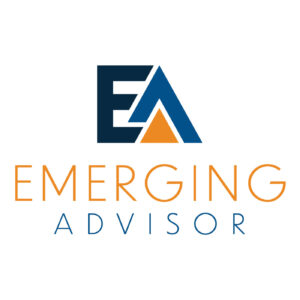
If your intent is to build a practice built upon higher net worth clients, there’s one thing I’d encourage you to consider first. While there are many exceptions to this, typically a more affluent client has worked with more advisors, has had more opportunities to see the competition, and has also become better educated on the ins-and-outs of various advisory approaches. As a result, you’d be wise to center your approach on this reality: an educated client is generally a better client…if you’re really good at what you do. If you’re not really good at what you do, and have little intention of changing that, do not prospect up.
A brand that I respect immensely is Porsche. If you’ve ever met a person who loves Porsche sports cars, it’s very likely they’ll talk your ear off about all of the nuances, features, and engineering principles built into their beloved car. Every aspect of that car has been considered by its owner, often through years of endless research and conversation with other Porsche lovers. The effect of this is a customer that will likely never leave the marque and switch to another; they have too much invested in their research to move their car dollars elsewhere! That’s the kind of client you want for your practice, right? Porsche just so happens to do more than any other car brand at educating their information-hungry customers about the cars they offer.
So what makes a lifelong high net worth client choose you? I believe it’s the education you choose to offer them before they move a single account to your care. Think about this, if you invest in an education-based client acquisition process, you’ll not only attract prospects who appreciate an education, but you’ll also retain them because they invested a lot in getting though your process, now understanding more than ever why they chose you in the first place. The next advisor to come along with a free steak has to convince them to start over in a new process, in hopes that they might find a bigger pot of gold at the end (figuratively, of course).
When you choose to market to a higher net worth prospect, you’re simultaneously choosing to invest more in an education-based onboarding process. I don’t believe you can sustainably do one without the other. Focus more on sales and less on education, and you’re very likely to attract a less educated and more transient client. You might get the client faster but you’ll possibly lose them faster too.
Here are few thoughts on becoming intentional about the client you’d like to serve and the means by which you’ll attract them:
- Decide on an ideal client. Yes, you’ve heard this before, but have you really done it? If so, how specific is your description of that person or couple?
- Describe in great detail the five or six key concerns of your ideal client. Ask yourself if your current solutions actually address those concerns.
- Review every step and touch-point in your client onboarding process. If you’d like to attract a different client than the ones you’re currently attracting, what parts of your process must be improved to achieve the desired result?
- Survey a number of the people you think your process is designed to attract. Ask them for feedback. Does your approach actually resonate with them, and how might it be improved?
- Have the courage to question everything you do critically, and do something about it! If your business isn’t working like you wish it would, do everything you can to bring about the changes you wish to see.
For most of us, this career will be a lengthy one, so investing the time now to develop the business how we’d like it to be can be an unbelievable form of leverage. After all, small improvements, made now, will impact each and every person we interact with over the years to follow. By paying close attention to the education we provide our prospects and clients, we not only attract those who are more likely to appreciate and stay with us, but we provide them with more satisfaction about the choices they’ve made in the planning they’ve done. You can be the advisor for the educated, but you must choose to do so, and truly walk the walk. And in the end, I think you’d be hard-pressed to find good reasons for not providing more education to those who are desperately seeking it. It’s truly a win-win.
Browse Resources
Browse Podcasts

Ep 10: Overcoming the Challenges Currently Facing Advisors

Ep 9: What We’ve Learned from Teaching Virtual Classes

Ep 8: Embracing New Technologies & Processes with Don Anders

Ep 7: Finishing Out 2020 & Planning for the New Year


